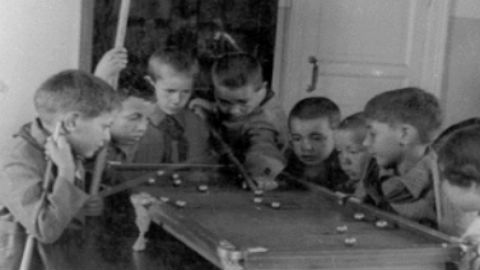"Children of the War" at the UAB

22/11/2016
The exhibit was inaugurated on 23 November, at the exhibit hall of the UAB Theatre (Plaça Cívica), by Dolores Cabra, Secretary of the Association for the Creation of the Civil War Archive (AGE), and Josep Fernández Trabal, Head of the Area of Historical Documents at the National Archive of Catalonia. Also participating were Virginia Luzón, Vice Rector for Communication and Promotion, and Maria José Recoder, Dean of the Faculty of Communication Studies.
The exhibit explained the story of a group of children known as the "children of the Spanish War" who explain their experiences through documents and images from the Spanish Centre in Moscow which the Archivo, Guerra y Exilio (AGE) association donated to the National Archive of Catalonia.
It thus narrated one of the nicest chapters of solidarity between countries: the reception of refugee children during the Spanish Civil War. Taking in these children represented a profoundly humane act, full of solidarity, something particularly remarkable given the current context of refugee crises.
Between the months of March 1937 and November 1938, an agreement was signed with the Soviet Union in which the Spanish Republic was to send almost 3,000 children to Russia in order to save them from the Spanish Civil War. Two expeditions left Barcelona in July and November 1938.
Many were orphans and the sons and daughters of men fighting at the front, and they received a warm welcome from the Russian people and authorities. However, what was meant to be temporary finally became a forced exile which would mark their lives forever.